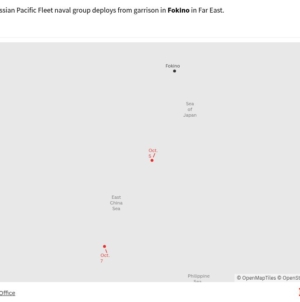-
Jussie Smollett’s Conviction for False Hate Crime Claim Is Overturned - 20 mins ago
-
Mom Dreamed Cat Would Meet Newborn—Touched by Reaction When It Happened - 37 mins ago
-
Nearly half of L.A.’s homeless budget went unspent, controller finds - 38 mins ago
-
Brazilian Police Accuse Bolsonaro of Plotting a Coup - about 1 hour ago
-
DEI Made the Democratic Party Less Diverse | Opinion - about 1 hour ago
-
Burning tree in South L.A. leads firefighters to a grim discovery - about 1 hour ago
-
Brian Kemp Tapped to Head Republican Governors Association - 2 hours ago
-
Netanyahu, Wanted by a Landmark Warrant, Now Faces a Smaller World - 2 hours ago
-
South Pasadena joyride ends in reckless evading for 13-year-old - 2 hours ago
-
Shedeur Sanders Is Not a Top-20 Prospect in 2025, per NFL Draft Expert’s Big Board - 2 hours ago
Dutch Government Approves Hardline Migration Measures
The Netherlands has become the latest European nation to take a hard-line stance against migration by announcing a raft of tough measures, including the reintroduction of border checks.
The Dutch government is fast-tracking measures to limit asylum policies, which will soon be sent to Parliament for approval. Key proposals include tightening family reunification rules for asylum recipients, shortening temporary visa durations, and designating some areas of Syria as safe, allowing authorities to deny asylum applications from those regions.
Syrians currently make up the largest group of migrants arriving in the Netherlands, and these changes aim to curb overall asylum numbers.

Peter Dejong/AP
Do EU Countries Still Have Border Controls?
The Netherlands’ policy shift follows recent discussions among European Union (EU) leaders aiming to address migration by restricting previously unchecked movement between EU countries, many of which did not carry out border checks until recently.
According to the European Union website, countries that formerly did not carry out border checks can temporarily reintroduce them for up to six months.
Recently Germany has reintroduced some border checks, and France’s new government has committed to a stricter stance on immigration. These moves signal a broader trend across the EU toward tightening migration policies after years of relatively welcoming approaches.
How Will This Hardline Migration Policy Work?
“We want to make the Netherlands as unattractive as possible,” said Asylum and Migration Minister Marjolein Faber.
Fabers is a member of Geert Wilders’ anti-Islam Party for Freedom, which currently dominates the government.
“Today is a beautiful day,” said Wilders who hailed the measures as “the toughest asylum policy ever.”
Migration Measures Will ‘Cause Chaos’
The Dutch Cabinet approved a migration reform package after lengthy negotiations, which included Geert Wilders and other party leaders. In addition to reintroducing border checks, the package also eliminates the law requiring municipalities to house migrants.
In response, the Dutch municipalities association warned that the new measures would “create chaos.” It said that “tasks should be fairly distributed among municipalities.”
Prime Minister Dick Schoof said the moves aim to “reducing the inflow, accelerating the outflow, returning those who are not lawfully staying and getting the asylum chain back in order and thus reducing the pressure on society.”
Immigration Measures Criticized
The Dutch Council for Refugees criticized the newly proposed asylum policies, which leaked earlier in the week, stating that they would fail to address underlying issues in the Netherlands.
The council argued that this “toughest-ever asylum policy” would benefit no one, pointing instead to problems with a slow asylum processing system and inadequate accommodation for new arrivals as the real causes of the strain on resources.
Over the past year, 51,000 people have applied for asylum in the Netherlands, which has a population of 18 million, according to figures from the Immigration and Naturalization Service. Last month saw 4,026 arrivals, a slight decrease from 4,683 in September of the previous year.
The recent debates focused on using either crisis legislation, which bypasses parliamentary approval, or fast-track legislation requiring lawmakers’ consent, as the government moved to enact stricter immigration policies.
This article includes reporting from The Associated Press
Source link


















